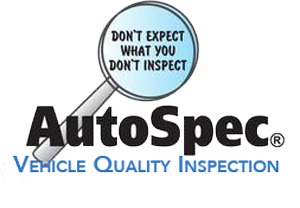Seven Tips For Finding a Trustworthy Repair Shop
From time to time a fellow motorist will ask us if we have any tips on finding a good, trustworthy repair shop. As vehicle inspectors, who specialize in mechanical breakdown evaluations, we visit over 100 different repair facilities every year. This includes stops at massive dealerships in larger cities to smaller family owned enterprises in rural areas. Experience has taught us that the competence, expertise, and professionalism of these shops vary widely. To avoid a potential headache, motorists have to be on the lookout for sub-par shops.
Maybe you’ve just relocated, or you might feel like you’ve been burned by the repair facility you’re currently using. So the question is, how can you find a good shop?
- Get a referral: This is the most obvious route, and it’s also the best one. The idea is to get a referral from someone who owns a vehicle that is manufactured by the same company that built your car. Said another way, if you drive a Mustang, ask a fellow Ford driver who they would recommend. Experience has shown that automotive repair shops that specialize in one or two different makes of cars tend to be a little more knowledgeable and efficient as compared to others that work on any and every car line.
- Check the online ratings: Checking ratings across multiple sites like Car Talks Mechanics Files, Yelp, Google, Angie’s List, and the Better Business Bureau can help give you a more accurate picture of each shop’s reputation. Another place to check out a prospective auto repair shop is mechanicratingz.com.
- Use an app: Openbay and MyCarfax give users access to a database of shops that have been screened by the app owners. Private social networking services like Next Door can be helpful too.
- Talk to the pros: Solicit advice from technicians or service advisors who work with different makes and models. For example, you could ask a technician that works exclusively on Chrysler vehicles if he or she knows of a good repair facility or technician that specializes in the maintenance and repair of Nissan’s. The automobile repair industry is a small, but very interconnected group. Chances are they will know someone that may be able to help you out.
In addition, people who work in auto parts retail stores, body shops, and in automotive sales centers have a wealth of industry knowledge that they’re usually happy to share. They likely have multiple professional connections with local shops, so they may be able to steer you in the right direction.
- Contact a professional organization: There are multiple organizations within the auto repair industry that are dedicated to informing and protecting consumers. Check out the Automotive Service Association, Independent Garage Owners of North Carolina, and the Motorist Assurance Program to find lists of vetted, integrity-driven shops.
- Check the papers: Many local publications have “best-in-town” annual awards for service providers. These publications can help you find repair facilities that have a good reputation in your community.
- Tow truck drivers: Believe it or not, tow truck drivers can be a very good source of information when it comes to finding a reputable repair shop. Experienced tow truck drivers tend to know who has made a good name for themselves in the industry.
Following just one of the above tips will get you off to a good start in finding a shop you can rely on. To get the best results, check out any shops you do business with through as many of these processes as possible.
